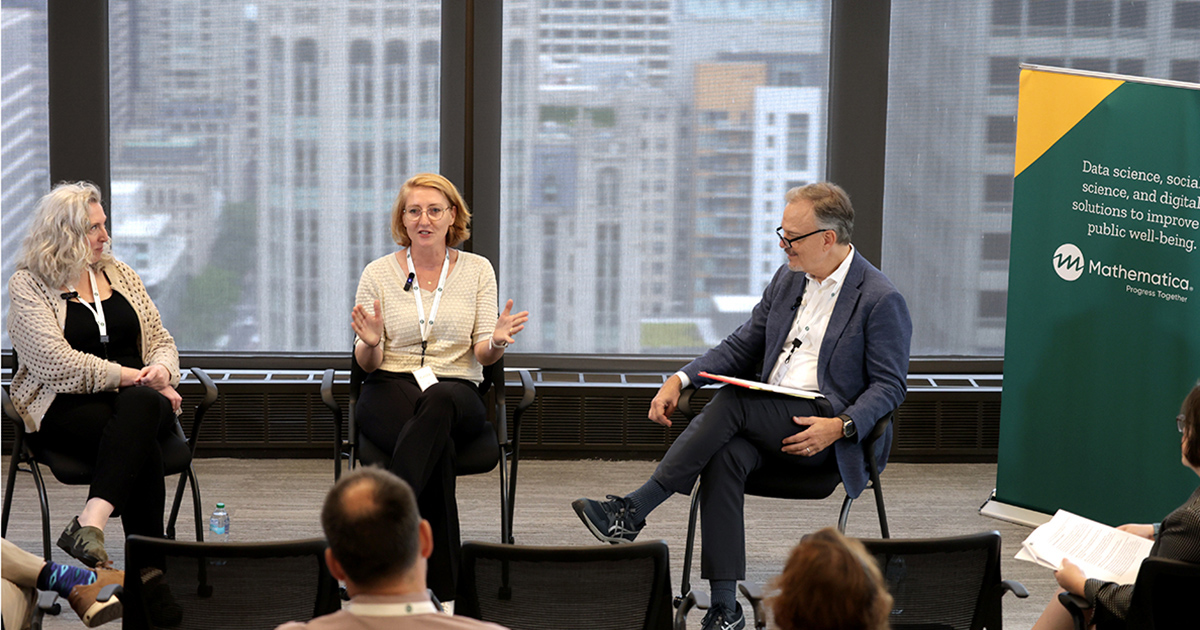When the International Population Data Linkage Conference came to Chicago this year, it was the first time the United States had hosted the biannual meeting since it began in 2008. Mathematica saw an opportunity to convene experts from government, academia, and the private sector after the conference to discuss the best ways to collaborate and improve data linkages for better public policy. In light of this goal, we organized panels on three related topics: The role of population data in evidence building, liberating data across the globe for better health outcomes, and how new technologies can help bridge the data linkage gaps.
Our first discussion focused on the role of population data in evidence building as a tool for policymaking. The panel was moderated by Mathematica President and CEO Paul Decker and featured Amy O’Hara, director of the Georgetown Federal Statistical Research Data Center, and Kasia Karpinska, scientific manager, Open Data Infrastructure for Social Science and Economic Innovations in the Netherlands.
In opening remarks to frame the discussions, Ngan MacDonald, who leads Mathematica’s Health Data Innovation Lab, emphasizes the importance of stakeholders across the health care ecosystem, from clinicians to insurers to researchers, working together to share and use data that can help improve patient health.
Ngan opens the panel by establishing the key theme of the day: data is a team sport.
Paul speaks on the importance of data and artificial intelligence in research and evidence going forward.
Kasia and Amy offer their thoughts on the International Population Data Linkage Network and opportunities to bring more sectors into the fold in the coming years.
Kasia explains why the Dutch system of data linkages is so highly regarded and the laws upon which it is founded.
Amy discusses the progress the United States has made since the Evidence Act was passed in 2018.
Kasia and Amy discuss the importance of data governance in creating strong data systems and explained why they need to be federated.
The panel concludes with a conversation on how to best involve policymakers in data infrastructure and research.
More work still needs to be done to improve data infrastructure in the United States and to link the necessary parts of government and industry together. A future blog will distill key insights from our panel on how global collaboration could liberate data for better health outcomes.




